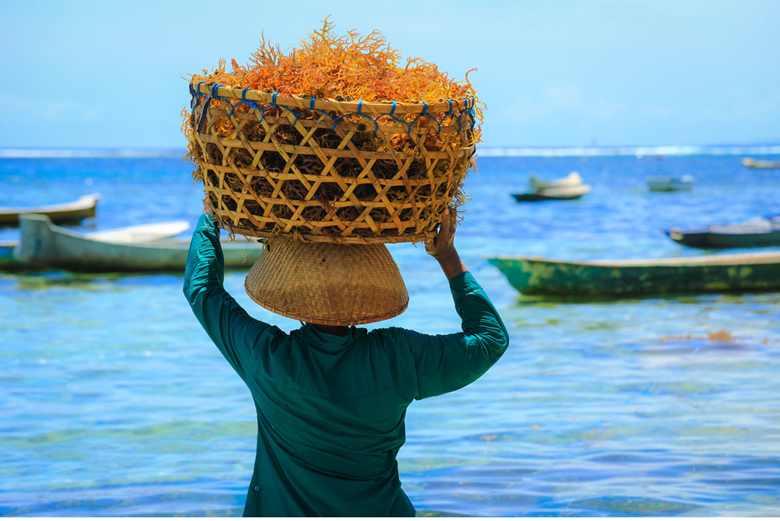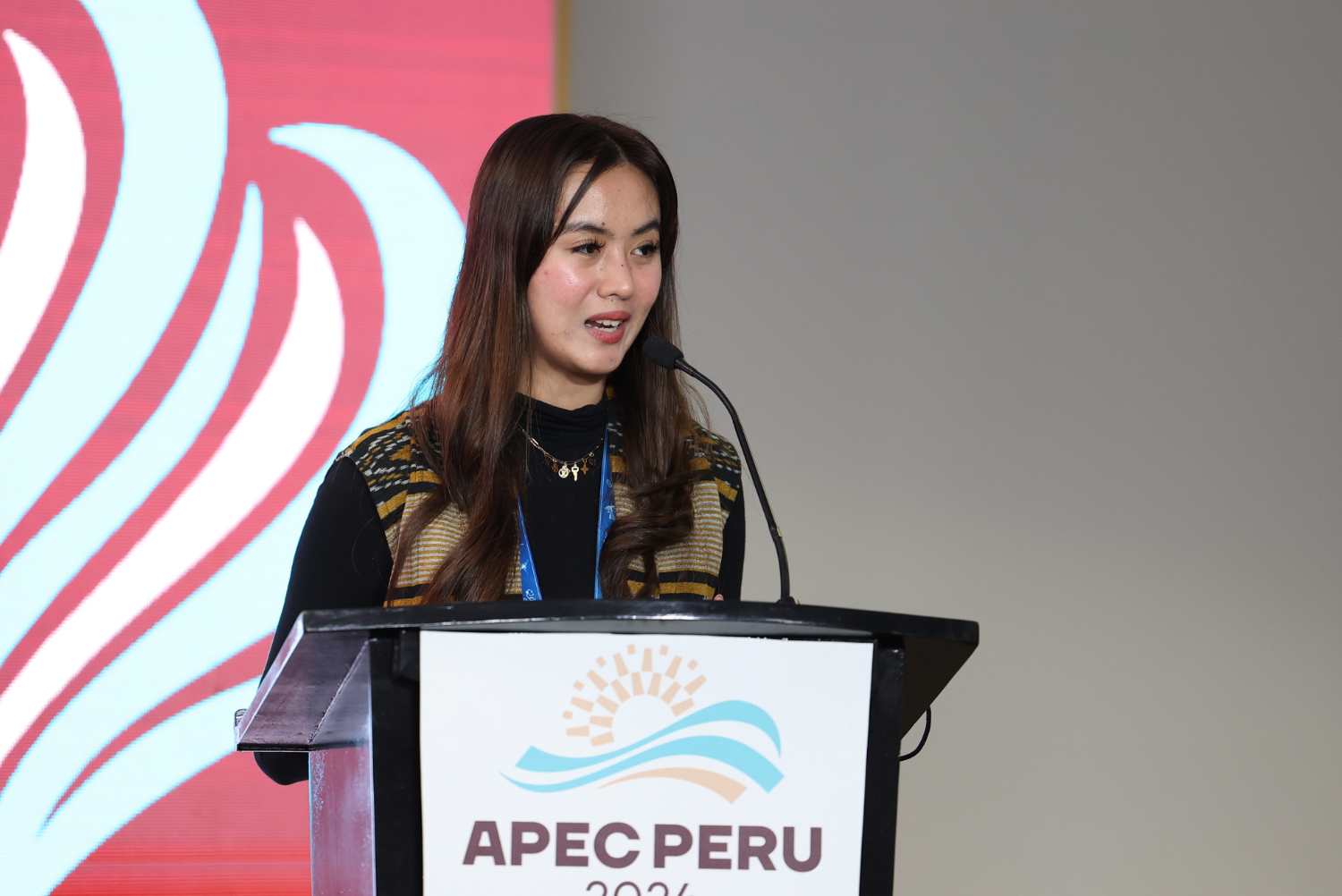Resilient Future: Banking on Hope for Women in Agriculture in the Philippines

Determined to uplift marginalized seaweed farmers and empower rural women, Alyssa Sahali Tan found a women-led social enterprise that is transforming the landscape of sustainable farming.
Alyssa Sahali Tan is a woman and entrepreneur on a mission: to improve women’s access to the economy, to innovate in the world of agriculture, and—as a member of a long line of Indigenous peoples’ leaders—to give back to her community.
Hailing from the Bangsamoro Autonomous Region of Muslim Mindanao, located in the southernmost island of the Philippine archipelago, Tan has her roots in an ethnically diverse region, home to 13 ethno-linguistic tribes. Her home has historically faced many social and economic challenges, prone to poverty and food insecurity, especially for farmers, more so for women and children.
“Women and children are often left at a disadvantage,” said Tan, during an APEC Agricultural Technical Cooperation Working Group (ATCWG) workshop. “They can also be subjected to gender-based violence, economic distress and marginalization.”
“We need gender-responsive policies and interventions,” she told agriculture officials and delegates from the Asia-Pacific region gathered to share strategies to improve the competitiveness of women in small-scale agriculture.
The ATCWG is a platform for APEC officials to explore ways to enhance the capacity of agriculture and its related industries in the region to contribute to economic growth, food security and social well-being within APEC economies. One of its tasks is empowering women and youth in the agriculture sector through policy recommendations and exchange of best practices. This is where the voice of entrepreneurs like Tan matter.
Coming from a community of women leaders in the Bangsamoro, Tan is fully versed in Philippine policy and legislative measures to combat gender inequality. However, she also recognizes that on the ground, it can be an uphill battle. Despite the best efforts of policymakers, agriculture continues to be a male-dominated sector. Most female farmers and fisherfolk remain at a disadvantage compared to their male counterparts, with limited access to resources and limited participation in training or capacity building. They also face occupational health issues.
In 2019 alone, in the Philippines, the agrarian reform programs awarded land ownership and titles mostly to men with only 28 percent for female beneficiaries.
“This is proof that disparity and labor inequality still exists,” said Tan who is eager to point out that closing the gender gap and providing women with the same sources as men would benefit communities, potentially increasing yield up to 20 to 30 percent.
“We have to be radical in our economic approaches if we are to create a culture of innovation,” she said. “We can do this by rediscovering forgotten food heritage.”
Tan found her food heritage innovation in an underutilized Bangsamoro staple: seaweed—a zero-input crop that requires no land, fertilizer or fresh water, making farmed seaweed attractive in the face of draught and scarcity.
In a groundbreaking initiative to uplift marginalized seaweed farmers and empower rural women in the Bangsamoro region, Tan and her sister Dayang Sahali Tan founded Mangan, a women-led social enterprise spearheading a transformative movement in sustainable agriculture.
“Mangan is an Indigenous-led and owned social enterprise that offers community and culture-based food products from rural coastal communities in the Philippines,” Tan explained. “We partner with local farmers for their ingredients to eradicate layers of trade, exploitation by middlemen, thereby increasing income of the farmers.”
“Seaweed provides alternative for coastal communities, especially during typhoon season,” Tan said of the enterprise’s flagship produce. “It is also a viable tool that strengthens rural economy, as well as an effective apparatus on climate change mitigation.
“The Bangsamoro is actually the leading seaweed producer of the Philippines,” she continued. “In fact, the Philippines is one of the top leading seaweed producers in the world.”
Currently, Mangan staple product offerings include seaweed chips, vinegar, cocoa syrup vinegar, and roasted coconut bits— all sourced from community-based food products and based on Bangsamoro culture.
According to Tan, those who make their products are mainly rural women, mothers and housewives. This initiative not only provides fair prices and employment opportunities to Indigenous farmers but also supports education for Indigenous children as a portion of the profit from the products are allotted to support the schooling of Indigenous children by rebuilding their schools.
Besides its focus on agriculture, Mangan is also committed to supporting the community through aid to medical health workers and farmers all over the Philippines, as well as donations of laptops and tablets to Indigenous children.
This commitment to gender empowerment and community support has led to collaborations with media and brands to raise awareness about seaweed farming and celebrate food biodiversity.
“We have also worked with UN agencies as well as multinational corporations all over the world,” Tan shared.
As the Philippines implements gender-responsive policies to combat inequality in agriculture, initiatives like Mangan stand as beacons of progress, demonstrating that closing the gender gap and providing equal resources to women could significantly increase agricultural yield and foster sustainable growth.
Mangan as an Indigenous-led social enterprise in the Bangsamoro region exemplifies the potential, resilience, innovation and diversity in the agricultural sector of a developing region. Through economic empowerment and educational support for Indigenous children, Mangan showcases the role that social enterprises can play in creating inclusive businesses.
“We need to heed the call for action, for individuals and organizations and economies to work together to create a more equal society where women can fully participate and thrive, and have transformative impact on society,” said Tan.

